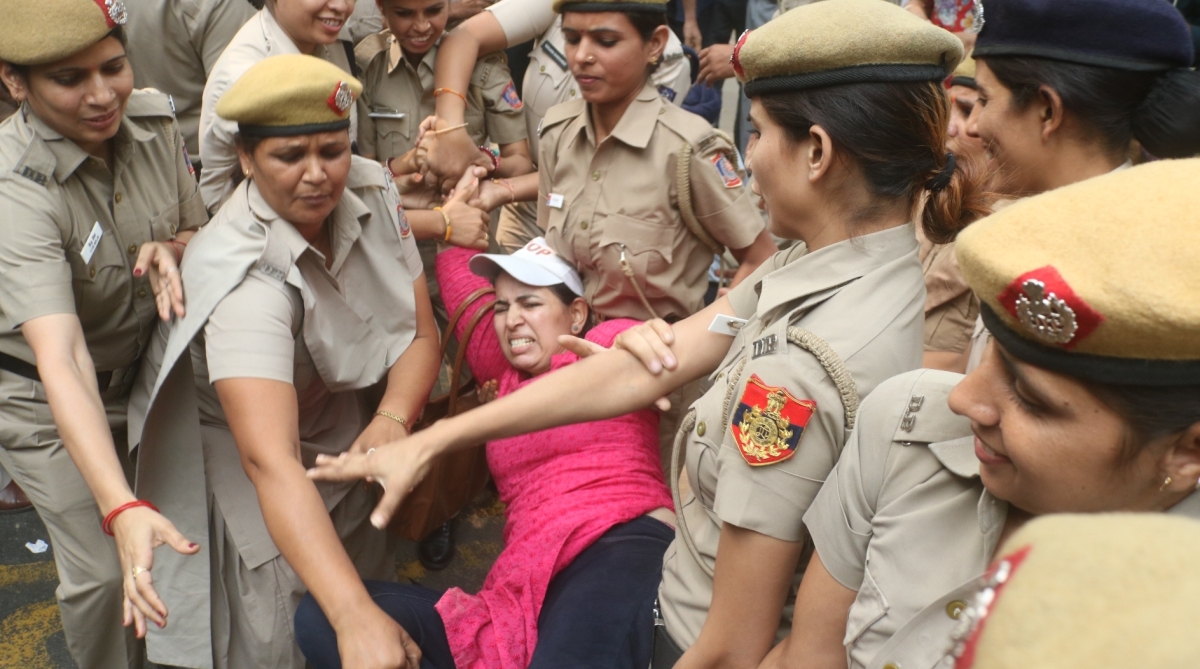India’s Got Latent: SC issues notice on YouTuber Ashish Chanchlani’s plea against FIRs
SC issues notice on YouTuber Ashish Chanchlani’s plea to quash or transfer FIR in India’s Got Latent case; tagged with Ranveer Allahabadia’s petition.

This photo taken on 30 October 2017 shows police evicting protesters from Jantar Mantar after National Green Tribunal (NGT) order to stop all protests, public gatherings and use of loudspeakers in the area. (Photo: IANS)
Taking a highly principled stand upholding a citizen’s fundamental right to protest is at the core of the Supreme Court’s much-lauded order overturning the ban imposed by the National Green Tribunal last year on the holding of protest rallies at Jantar Mantar, as well as the 1988 ban on such rallies at the Boat Club at the western end of the Central Vista.
Yet that even before the order from Justices AK Sikri and Ashok Bhushan had trickled down, Jantar Mantar had been “reoccupied” points to the practical difficulties that the police and other authorities will encounter in trying to enforce the less-publicised part of the judicial order placing certain restrictions on the shape the protests could take.
Advertisement
It boils down to the age-old query of where does one person’s freedom end and another’s begin. The sad reality is that neither venue, nor indeed the experience of how the protests have played out, equates with a Hyde Park. And the question arises if their Lordships overstepped their authority in prescribing conditions that others would be required to enforce.
Advertisement
At the same time it must be stressed that the Ramlila ground, which was the recommended alternative to Jantar Mantar, was a poor choice. An expensive one too since a daily fee or Rs 50,000 was levied for using that facility ~ quite some distance from the political heart of the nation, and generally out of the public eye. That few opted for that venue speaks for itself.
Though the apex court order has been welcomed, inadequate thought appears to have been given to the severe disruption caused to the lives of people living and working near Jantar Mantar in the central business district of the city. Traffic on the busy Parliament Street was frequently thrown out of gear and some shopkeepers of Connaught Place/Janpath could not help recalling the violence in1965 when an anti-cow slaughter rally (gau-rakshaks are not exactly new) turned violent.
The recent trend of protesters setting up camps there has brought complications like sanitation and water supply. The Boat Club has also had its ups and downs ~ the massive farmers’ rallies of Chaudhary Charan Singh and Indira Gandhi. And then farmers staying put there for several days in 1988, resulting in the ban.
With the Central Secretariat station having become a key inter-change point on the Metro a new dimension has been added to the problem. Clearly persons exercising a fundamental right have created a “between a rock and a hard place” situation for all concerned.
Alas, rights and responsibilities do not always go hand in hand. The politicians who spark mass protests leave after their “job is done”, tasking others with the clean-up. All the more reason for the Supreme Court to have got the police, civic agencies etc to formulate a workable blueprint before playing to a liberal gallery.
Advertisement